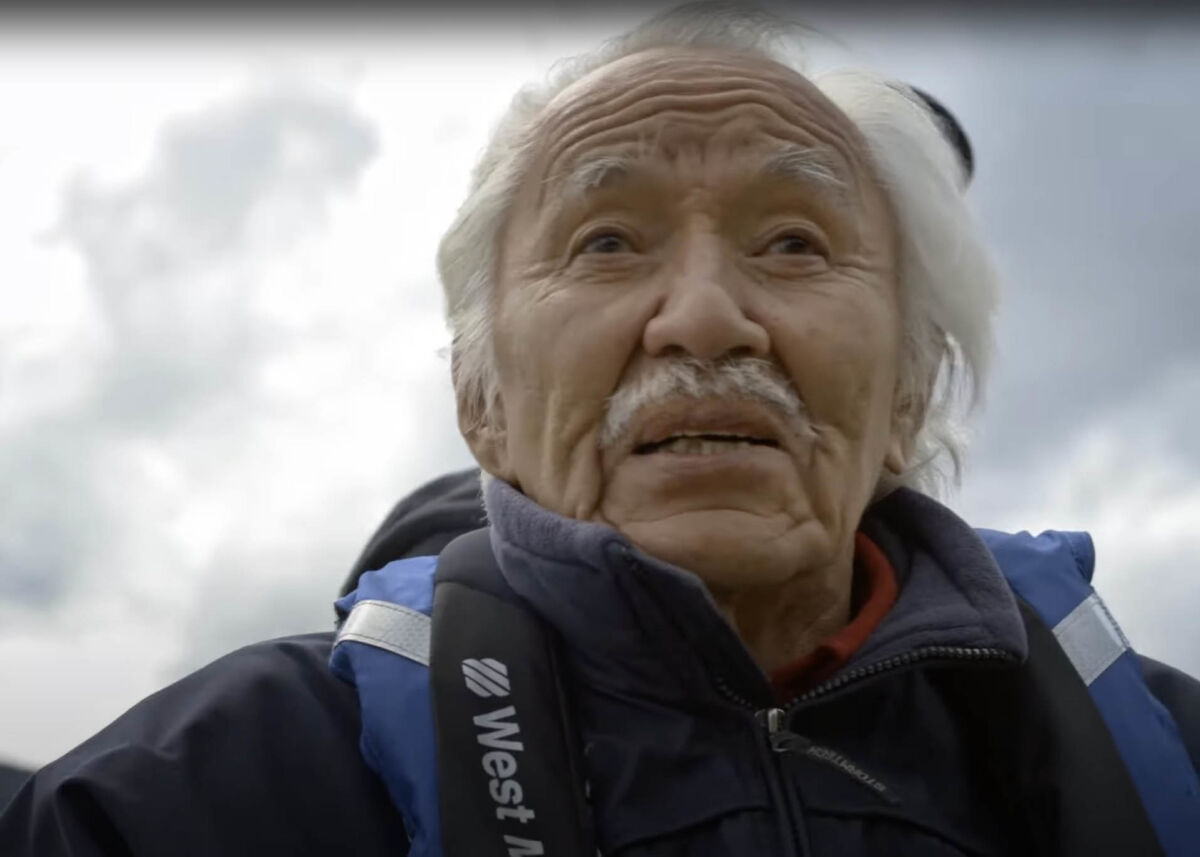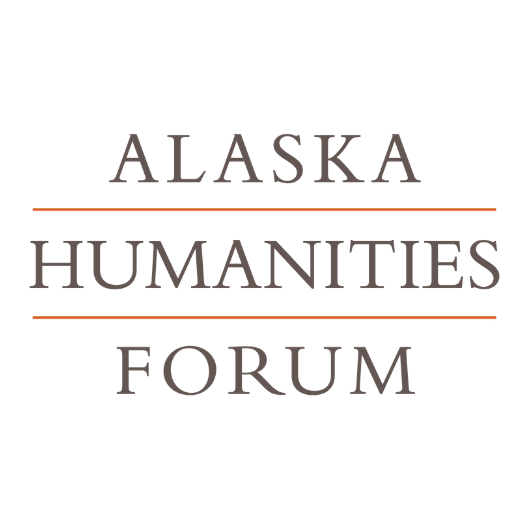
Magnetic North
Magnetic North is a documentary film series that explores the stories of Alaskans whose actions and ideas have shaped the history, spirit, and values of Alaska.
Capturing stories of the Alaskan
character through film
Magnetic North is a documentary film project produced by Alaska Humanities Forum in partnership with Rasmuson Foundation. The series explores the stories of Alaskans whose actions and ideas have shaped the history, spirit, and values of Alaska.
The films are written and directed by Marla Williams who has led filming projects in more than 100 communities across the state. Her work has appeared on national public television and other major networks.
Newly Released Films
Magnetic North: Willie Iġġiaġruk Hensley | Kotzebue
Description and discussion guide coming soon.
Ed Rasmuson | Anchorage
You’ve seen the Rasmuson name on museums, libraries, and university buildings. Known as one of Alaska’s leading philanthropists and former banker, Ed Rasmuson is an avid pilot, an outdoorsman who has hunted sheep from the Wrangell Mountains to the Wukan Corridor, Afghanistan, a history wonk and fan of cowboy movies and opera. He prefers cowboy boots, fine wine, and filleting his own fish. He’s a political conservative who wears a liberal hat. And he’s helped shape Alaska. < Discussion guide coming soon.
Vic Fischer | Anchorage
Born an American, he arrived a stranger to his country, but not for long. Vic Fischer would shape futures across Alaska and the country as a city planner, as a delegate to the Alaska Constitutional Convention, as a state legislator and activist. Nearly a century old, Fischer remains a passionate advocate for Alaska. > Discussion guide coming soon.
The Films
Jacob Anaġi Adams, Sr. | Utqiaġvik
Jacob Anaġi Adams, Sr. is an Iñupiaq elder from Utqiaġvik, Alaska. He attended the Wrangell Institute boarding school and completed high school at Mount Edgecumbe High School in Sitka. Adams is a successful whaling captain with his Anaġi Crew, and an active participant in Utqiaġvik’s political and business arena. He fought for the passage of the 1972 Alaska Native Claims Settlement Act and helped establish Arctic Slope Regional Corporation. He was elected to the first assembly when the North Slope Borough was incorporated in 1972, was the first elected president of the Assembly in 1978, and was appointed mayor of the North Slope Borough in 1978. From 1983-2006, Jacob was President and CEO of ASRC, and currently is a member of their Board of Directors. He served as Chairman of the Alaska Eskimo Whaling Commission from 1977-1980 and has been active in the Native sobriety movement, helping to create the Alaska Native Blue Ribbon Commission in the late 1980s.
Download The Discussion Guide:
CHANGING TIMES guide [pdf / 432K]
Nathan Jackson | Ketchikan
Nathan Jackson was born August 29, 1938, into the Sockeye Clan on the Raven side of the Chilkoot-Tlingit tribe in southeastern Alaska. After completing his military service in Germany in 1959, Jackson started carving miniature totem poles during a bout with pneumonia that diverted him from his commercial fishing activities. He discovered that he had a talent for carving and painting and attended the Institute of American Indian Arts in Santa Fe, New Mexico, to hone his skills. His work includes large totem poles, wood panel clan crests, masks, canoes, carved doors, and small items such as formline bracelets in silver and gold. His work is found in many museums in the United States and abroad.
Download the Discussion Guide...
Mentorship Guidance [pdf / 431K]
Roy Madsen | Kodiak
Roy Madsen was born in 1923 in the village of Kanatak on the Alaska Peninsula near Mt. Katmai. His father was a fur trader, and his mother was Sugpiaq-Alutiiq of the Sun’aq tribe. He attended Oregon State College, served in the Navy during World War II, and went to law school at Northwestern College of Law in Portland, Oregon. He served as a private and also district attorney; he helped to establish the Kodiak Area Native Association and the Kodiak Community College, served on the University of Alaska Board of Regents, the Alaska Commission for Human Rights, and as a Superior Court judge in Kodiak from 1975 until his retirement in 1990.
Download the Discussion Guide...
Sense of Place [pdf / 432K]
Governor William "Bill" Sheffield, Jr. | Anchorage
Governor William Sheffield was born in 1928 in Spokane, Washington. He came to Alaska to start TV sales and service for Sears in 1953 where he excelled before moving into real estate, developing a chain of hotels that he eventually sold to Holland America Line. Governor Sheffield served as the fifth Governor of Alaska, from 1982 to 1986, and then held leadership roles with the Alaska Railroad and the Port of Anchorage. He has been a generous philanthropist, serving as a board member and making legacy gifts to many of Alaska’s key statewide institutions.
Download the Discussion Guide...
Flexibility [pdf / 432K]
Arliss Sturgulewski | Anchorage
Arliss Sturgulewski is a retired businesswoman, politician, and longtime Anchorage resident. She received a BA in Economics and Business from the University of Washington and was awarded an Honorary Doctor of Laws degree from University of Alaska Anchorage in 1993. Sturgulewski was elected to the Anchorage Charter Commission, the Anchorage Assembly, and to the Alaska State Senate from 1979 through 1993. She has served on many municipal and state boards and commissions, as a trustee for the University of Alaska Foundation, the Advisory Council for the University of Alaska, and the School of Fisheries and Ocean Sciences.
Download the Discussion Guide...
Trailblazing [pdf / 431K]
Clem Tillion | Halibut Cove
Clem Tillion is one of Alaska's resident eldest living former Legislators. He is a long-time commercial fisherman, a nine-term Alaska State Legislator, and is a Charter Member and past Chairman of the North Pacific Fisheries Management Council. During his tenure in the Alaska State Legislature he served in both the House of Representatives and the Senate, including as Senate President. Over the past forty years, he has served on numerous state and federal councils and committees dealing with various Alaskan issues.
Download the Discussion Guide...
Legacy [pdf / 432K]
Alaska Humanities Forum
The Alaska Humanities Forum is a non-profit, non-partisan organization that designs and facilitates experiences to bridge distance and difference – programming that shares and preserves the stories of people and places across our vast state, and explores what it means to be Alaskan.
Gather Round: The AKHF Blog
- "Professional development for humans": A conversation with Theresa Lyons
February 26, 2026 • Polly Carr
- I have to have hope: Depolarizing Conversations work in the Mat-Su
February 16, 2026 • Colleen Lomenick
- An LA Mentoring Journey with Joelle Hall
January 28, 2026 • Polly Carr
